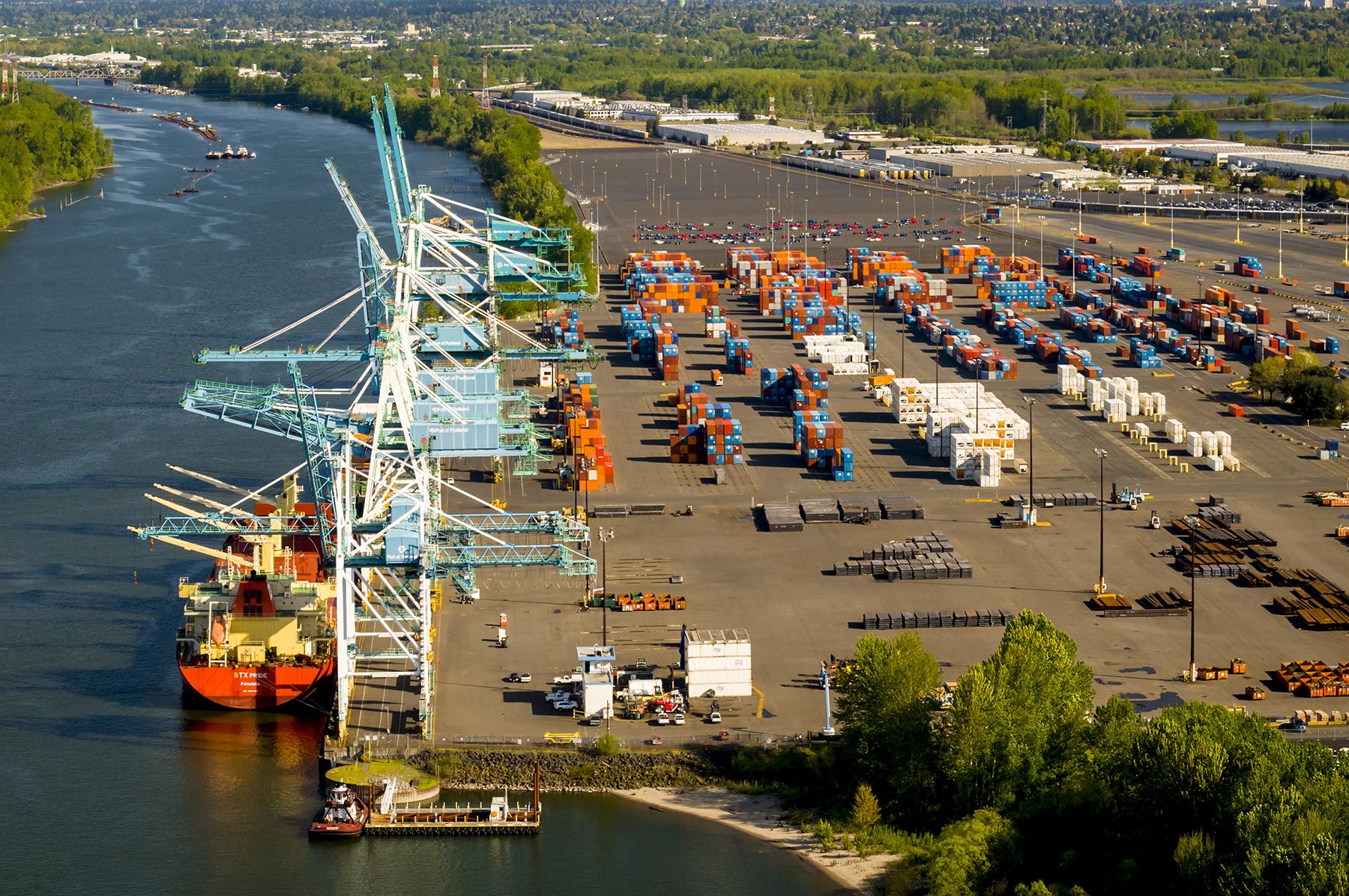
Terminal 6 at the Port of Portland, pictured here in April of 2013, lost 95 percent of its container business in April 2015.
Port of Portland
After union disputes led two international shipping companies to
, nearly all of the region’s imports and exports now must go through ports in Seattle and Tacoma — often at great cost to producers and consumers alike.
"Right now that's an existential threat," said Peter Friedmann, executive director of the Agriculture Transportation Coalition, on OPB's daily talk show, Think Out Loud, Monday
Friedmann has been working with Business Oregon and producers statewide to target new ways to keep trade alive. As a mediator, he's held a series of workshops to brainstorm potential solutions throughout the summer.
"The difficulty is there’s nothing that we produce in Oregon that cannot be sourced somewhere else in the world," said Friedmann.
If Oregon farmers can’t get their almonds, hay and filberts to global markets in a competitive, dependable, timely and affordable manner, those markets will start to look elsewhere.
And it's not just the exports we should be worrying about, Friedmann warned. Many of the things Oregonians eat, wear and use are imported from overseas on container ships. Delivering a container through Seattle or Tacoma instead of Portland can run the bill up as much as $1,000 per container. Consumers should expect to see the cost of rerouting tacked onto the price tags of container-shipped goods.
So how might we solve the problem? A number of solutions have been proposed, but Friedmann said the key to saving Oregon's exports and imports lies with the railroad. Oregon boasts two major railroad lines that could help get Oregon goods to port. The problem is, they don't often stop.
"That's just the economics of the railroad industry these days," said Friedmann. He's urging rail lines like Union Pacific and Burlington Northern to reinstate some of the short-distance hauling strategies they relied upon up in the century before 1980.
Another solution could be the creation of inland ports along the Columbia River. Rather than working with international carriers to ship goods from Oregon directly overseas, these ports would provide stopovers on the way to larger seagoing vessels in Seattle and Tacoma. That model, Friedmann said, has already proven to be efficient in moving goods and clearing ship congestion elsewhere in the country.
Brainstorming talks will continue through the month of August as Oregon producers and state agencies continue to search for solutions.
